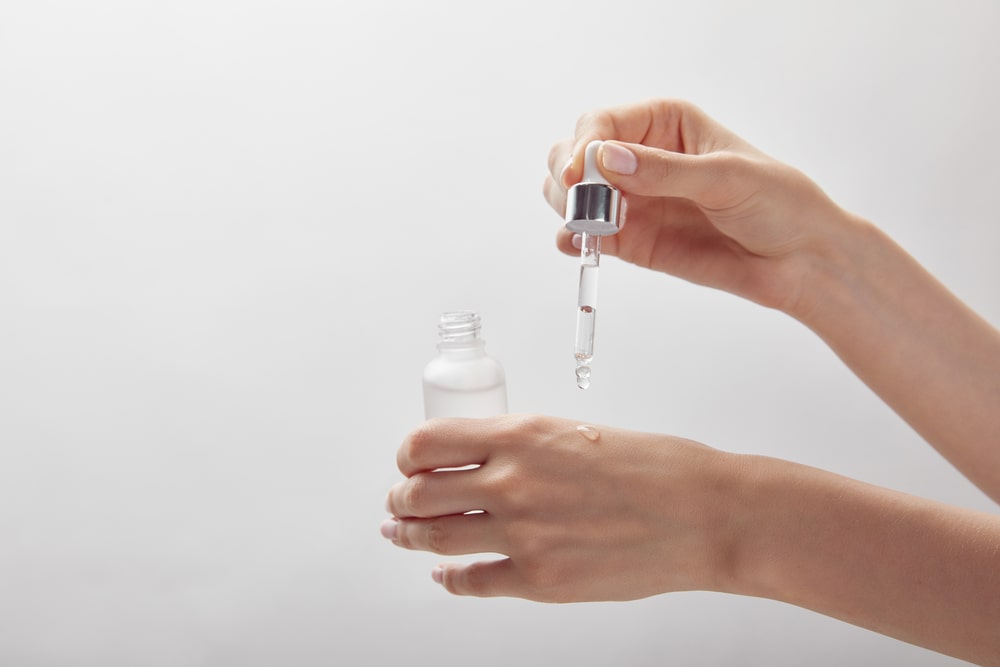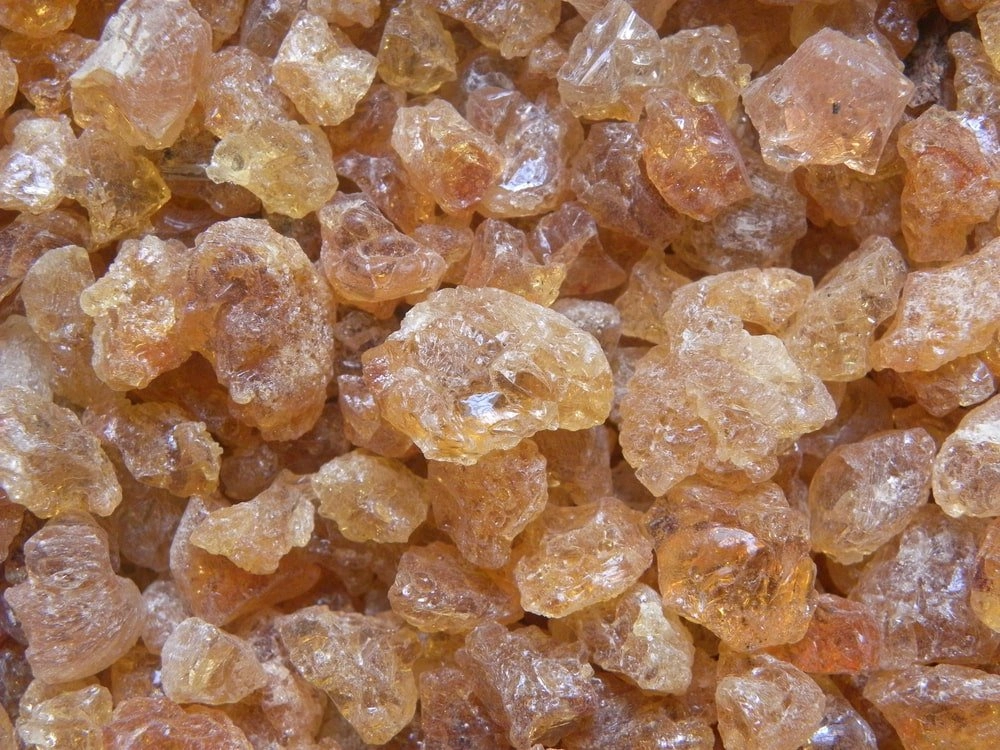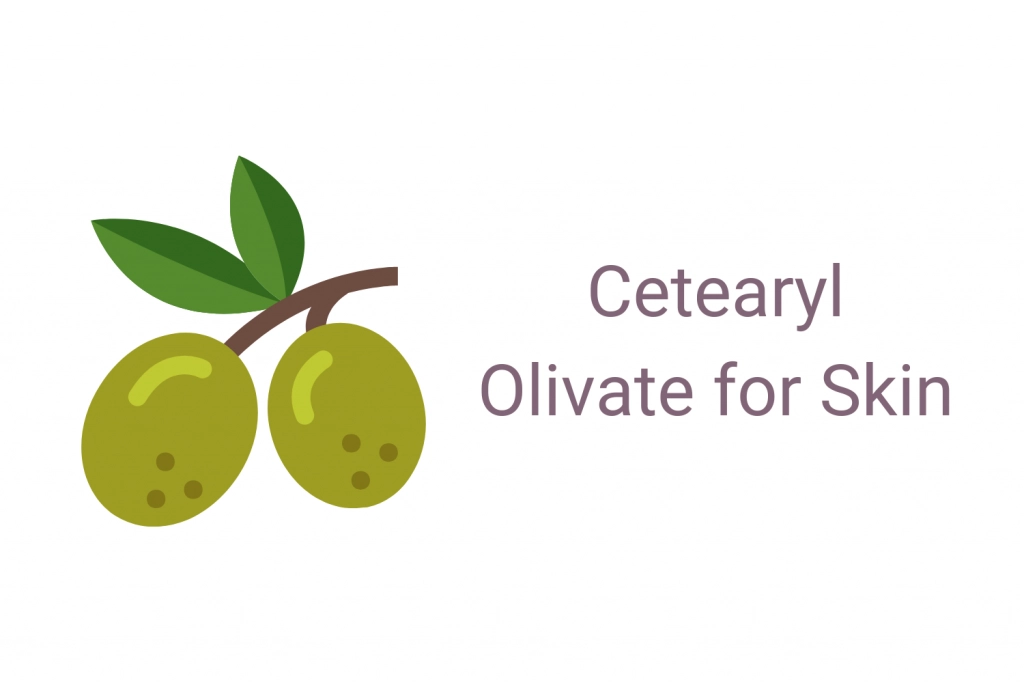There are many ingredients in skincare and cosmetics that you’ve probably never heard of. With the clean beauty movement being so popular right now, more and more people are investigating exactly what they are using on their skin and hair.
This post may contain affiliate links. Read the full disclosure here
It can be overwhelming to look at a list of ingredients that are completely unnatural without any clue as to why they are being used in particular products. One of those ingredients commonly used in cosmetic items is hydrogenated polyisobutene.
Let’s look at exactly what this ingredient does in skincare and cosmetic use to find out whether you should avoid it entirely, or if hydrogenated polyisobutene is safe.
What Is Hydrogenated Polyisobutene?
Hydrogenated polyisobutene is a synthetic oil emollient that has many different uses in skin care and cosmetic products. It provides slip and a silky feel to products in order to increase how easily they are spread across the skin.
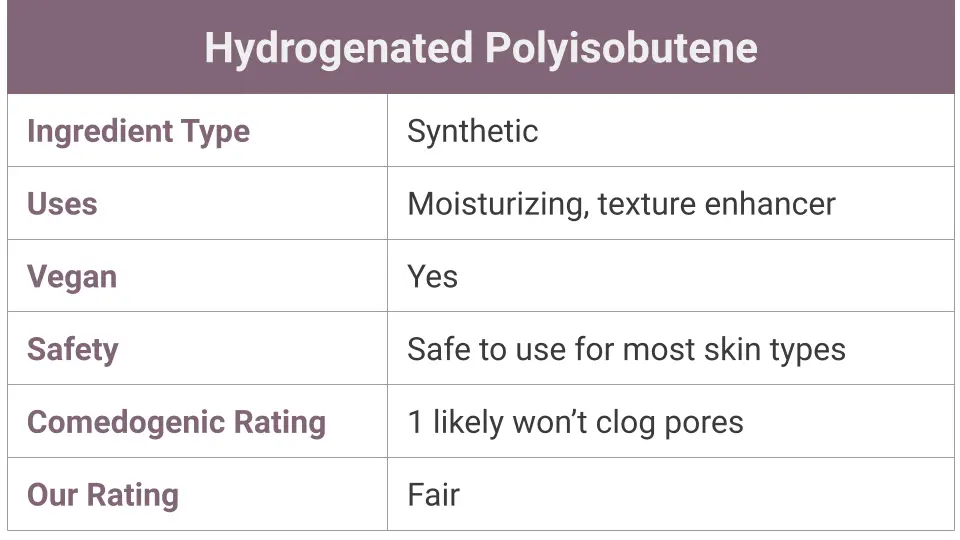
As an organic polymer, it’s created by using a mixture of 1 and 2 butenes combined with isobutylene, which is a hydrocarbon. Many times in products it’s used as a substitute for squalane, which is a compound that can come from shark liver oil.
Many beauty companies are making more vegan formulations, so are looking for proper substitutes. Hydrogenated polyisobutene is one of those used instead that doesn’t come from animal byproducts, since it’s created in a lab setting.
Hydrogenated Polyisobutene Uses
This type of synthetic oil has many different industrial uses, including sealants, putties, and coatings, but in cosmetic use, it mainly works in makeup and skincare products like lipsticks, glosses, balms, mascaras, sunscreens, and foundations.
As an ingredient base, hydrogenated polyisobutene helps the product spread easy, so that application is a seamless process because this oil helps makeup stick to or attach to the lips and skincare will impart moisture to the skin. The finished product containing hydrogenated polyisobutene will have a better shine factor or radiant quality due to the synthetic oil content.
Hydrogenated Polyisobutene Benefits for Skin
Since hydrogenated polyisobutene is considered an emollient ingredient that means it’s a highly moisturizing agent for protecting and lubricating the skin. The benefit is that skin will feel soft and smooth while you are using the product, pretty much until it’s washed off at the end of the day.
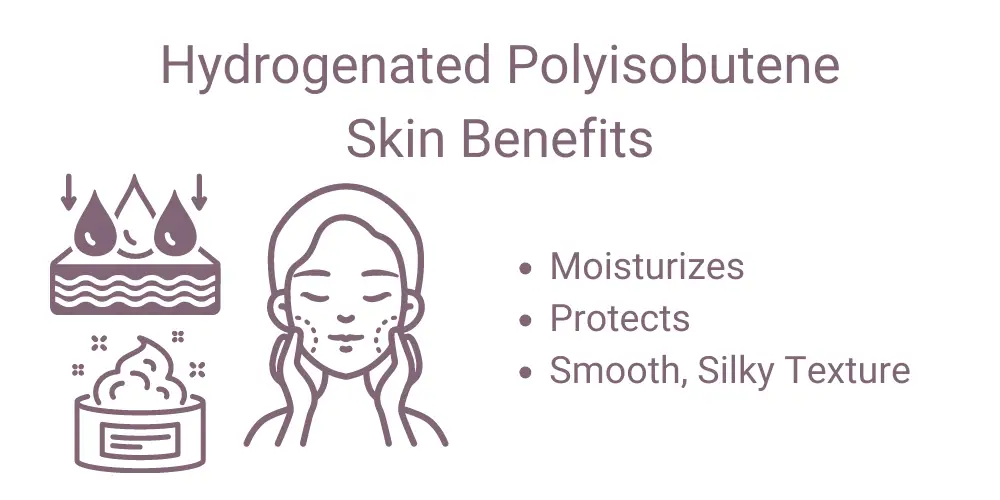
For the lips, that translates into helping to maintain the natural moisture barrier to the skin because without it some other oil product would need to be used. A lip product would be drying to the skin, if it didn’t contain some form of this ingredient.
Another benefit of this makeup or skincare ingredient is that it helps to impart a pleasurable texture to the product by creating a thicker feel for the product. It feels luxurious and silky while a person is applying a product with such a moisturizing oil base.
That includes products like sunscreen and foundation, which need to be applied with a texture that spreads easily over the skin. It leaves a dewy or glowing look to the skin that is desirable in makeup or skincare because it provides long-lasting moisture retention. It’s just going to feel better to use a product with hydrogenated polyisobutene, than without it.
Is Hydrogenated Polyisobutene Natural?
Hydrogenated polyisobutene is a chemically created synthetic oil or polymer, so it’s not a natural ingredient found in nature. It’s a lab-created substance that is used to replace mineral oil, other oils, and silicone-based ingredients.
How Safe Is Hydrogenated Polyisobutene for Skin?
In looking at reviews from two main organizations, the United States Food and Drug Administration and the Cosmetic Ingredient Review, they have both declared that hydrogenated polyisobutene is very safe for use in makeup and skincare products. It doesn’t produce any adverse effects or creates allergen issues in people that could potentially irritate or bother the skin.
Plus, it won’t clog pores so hydrogenated polyisobutene is considered non-comedogenic. You can even ingest it, without the substance being harmful to the body, which is why this ingredient is allowed in certain gums or candies. So in other words, this ingredient is very safe for the skin and body, inside and out.
Hydrogenated Polyisobutene Comedogenic Rating
As a moisturizing ingredient, hydrogenated polyisobutene has a comedogenic rating of 1. That means in looking at the scale of ratings, it starts at a 0 (non-comedogenic) and goes up to 5 (severely comedogenic).
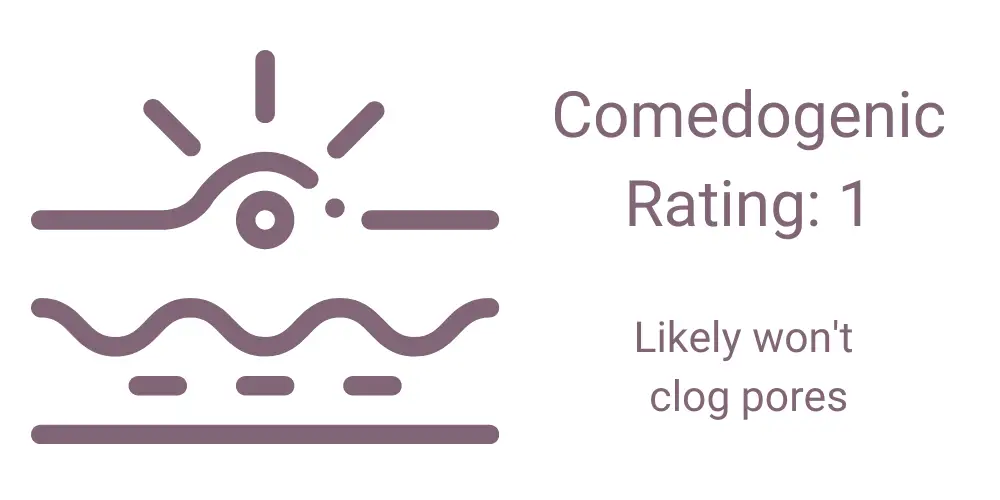
When an ingredient has a level of 1, it’s highly unlikely that it’s going to clog pores or cause any acne issues in the skin. You can use a product that contains hydrogenated polyisobutene without worrying about it creating breakouts that are hard to get rid of.
Dangers/Irritation
Since it’s low on the comedogenic rating scale, it will unlikely cause the skin any breakout issues. Plus, when you look at the fact that it’s approved by the FDA and Cosmetic Ingredient Review for use externally and in food products, that’s a good sign for the safety of hydrogenated polyisobutene.
In studies that have been done on the ingredient in mice and dogs by the Cosmetic Ingredient Review expert panel, it has been proven that hydrogenated polyisobutene doesn’t cause cancer, so it’s considered a non-carcinogenic ingredient. For safety in cosmetic products, hydrogenated polyisobutene is rated very highly.
What Type of Products Contain Hydrogenated Polyisobutene?
As stated before, many different types of makeup and skincare use hydrogenated polyisobutene. Some of those in makeup include, lipstick, lip glosses, and balms that need extra slip and moisturization when being applied to the lips. In other makeup products, like foundation, BB cream, or tinted moisturizer, it helps to give the finished product a more lustrous glow to the skin and makes it easier to apply.
In skincare, it’s often found in sunscreens and moisturizers that need to help the natural skin barrier retail optimal hydration levels. In the same way that foundation is easier to apply, it also helps skincare products, like moisturizers or serums, go on smoothly and evenly.
Is It a Good Ingredient In Skincare?
In those that are concerned about safety in skincare and makeup, hydrogenated polyisobutene is a very safe ingredient. It doesn’t cause irritation or adverse effects, immediately or in long-term use. It’s prized for the way that hydrogenated polyisobutene makes skin feel and is a definite benefit to having it in certain products.
The texture and slip are luxurious on the skin, and for those that don’t want to use animal byproducts, and prefer their beauty products to be vegan, it’s a suitable replacement for oils created from animals.
Related Ingredients You May Find Interesting

